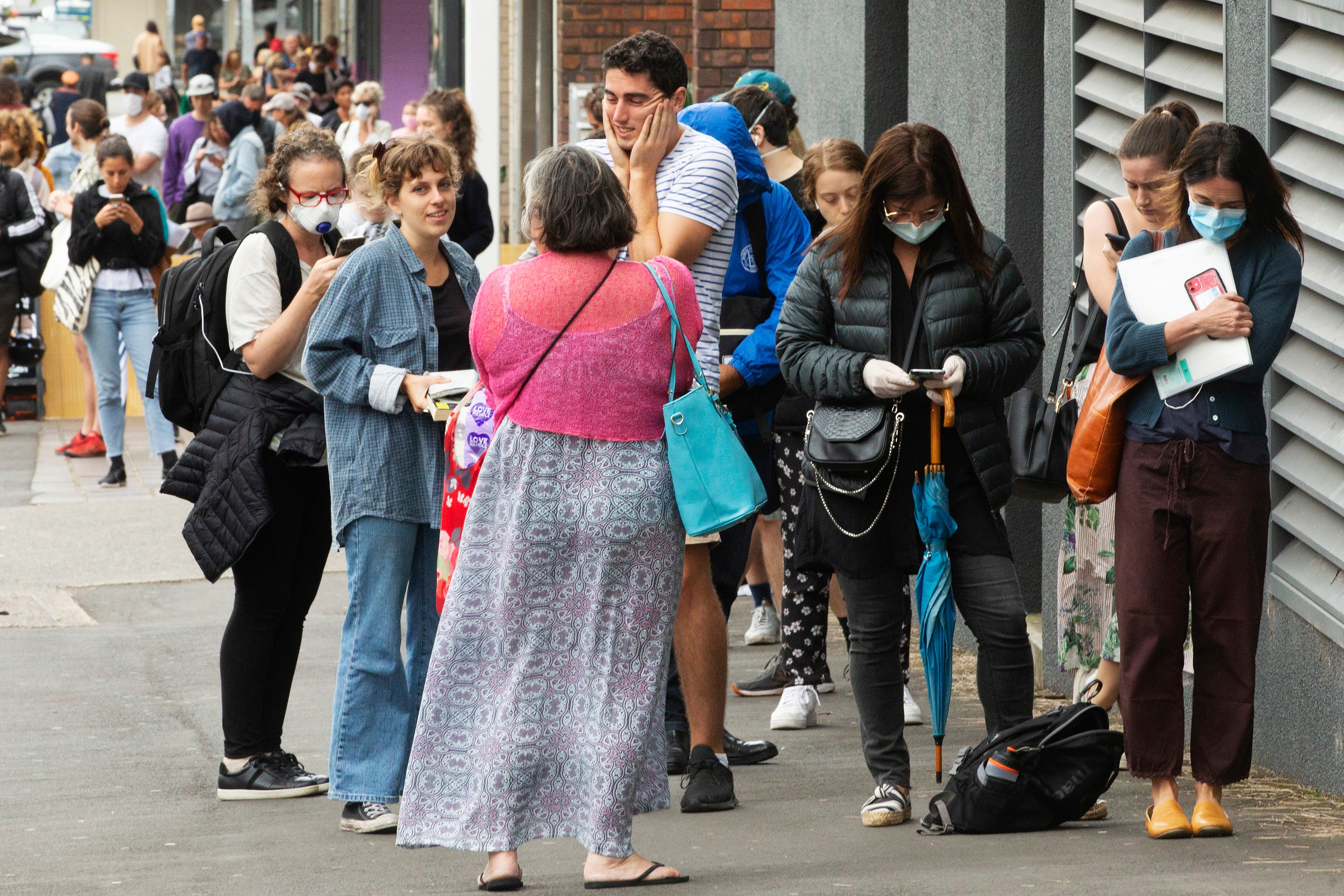NewsColony
Women have been the hardest hit by Australia’s coronavirus job losses
Racheal Wellman was enjoying the adventure of a lifetime in Japan when the coronavirus pandemic hit.
The 23 year old made the tough decision to leave her hospitality job on short notice and return to Melbourne, where she struggled to find a place to live until she found a new job as a barista.
Three weeks later, the coronavirus restrictions forced the cafe’s doors to close, and Ms Wellman found herself unemployed again.
“In those three weeks, I found a place to live, but now there’s bond that needs to be paid and there are bills around the corner,” she told SBS News.
“I had to take some money out of my super, and they say $1,000 now is $10,000 down the track, so it is frustrating knowing I’m having to impact my future like that.”
Ms Wellman described the cafe she was working at as a “dream” workplace staffed entirely by women who prided themselves on supporting each other.
When the time came for her boss to start letting staff go, Ms Wellman put her hand up to spare her colleagues who were not eligible for government support.
“I said ‘I know I’m eligible for JobSeeker, so I’d rather you let me go and I’ll struggle for a bit rather than you letting go a migrant who will get nothing whatsoever’.”
“I’m now getting $660 per fortnight, but I was earning at least $700 per week before, so it’s a big drop off.”
As the pandemic continues, there is mounting evidence suggesting women like Ms Wellman are being hit harder economically than their male colleagues.
Figures released this week by the Australian Bureau of Statistic show overall employment decreased by 7.5 per cent between 14 March and 18 April.
However, job losses were not equal across the board.
The period saw female employment drop by 8.1 per cent, while male employment fell by 6.2 per cent.
Associate Professor Alysia Blackham, who researches workplace discrimination and inequality at the University of Melbourne, said the pandemic was magnifying already existing inequalities in the labour market.
“Women were already overrepresented in insecure work and are more likely to be on casual contracts with no paid leave entitlements, so there is no obligation to employ them on an ongoing basis or ensure certain hours,” she told SBS News.
Women are also bearing more of the responsibility for educating and caring for children unable to go to school, making the search for work harder.
“As schools have moved to remote working and families have had to take their children out of daycare, women are also spending a disproportionate amount of time on caring responsibilities, and while we’d hope men would be picking up some of those responsibilities, we know women still carry most of them.”
Almost one million Australian jobs have been lost so far during the COVID-19 pandemic.
The unemployment gender disparity has widened in recent weeks, with the week ending 18 April seeing almost twice as many women lose their jobs than men.
But Associate Professor Blackham said those numbers might not show the true extent of the damage, with many smaller employers which do not use Single Touch Payroll software not included in the ABS data.
Coming from an all-female workplace, Ms Wellman said she was not surprised by the disparity.
“When businesses have to reduce hours, they’re going to let go of their lower level employees and keep their management and supervisors, so when it’s so hard for women to get into those positions then of course we’ll be the ones let go,” she said.
“It’s upsetting because it’s just a backwards step in all the progress we’ve made in recent years to try and step up – its almost like we’ll have to start again after the pandemic.”
The federal government is now allowing workers affected by the pandemic to withdraw $10,000 from their superannuation before 1 July and another $10,000 between 1 July and 24 September.
But with women retiring with an average of just $110,000 in superannuation – three times less than their male peers – Associate Professor Blackham said emergency withdrawals could leave women vulnerable for decades.
“To be a woman in retirement it can be incredibly tough, particularly if you don’t have your spouse if a relationship breaks down, and women are at growing risk of homelessness and poverty,” she said.
“So we’re asking individuals to trade off their immediate needs for their long term wellbeing, and that’s a really difficult decision to make.”
During a press conference on Tuesday, Prime Minister Scott Morrison said more than one million Australians had already been granted early access to their superannuation, releasing almost $10 billion in savings.
People in Australia must stay at least 1.5 metres away from others. Check your state’s restrictions on gathering limits.
Testing for coronavirus is now widely available across Australia. If you are experiencing cold or flu symptoms, arrange a test by calling your doctor or contact the Coronavirus Health Information Hotline on 1800 020 080.
The federal government’s coronavirus tracing app COVIDSafe is available for download from your phone’s app store.
Source: SBS
The post Women have been the hardest hit by Australia’s coronavirus job losses appeared first on NewsColony.
NewsColony
from WordPress https://ift.tt/2Weu27K



Comments
Post a Comment